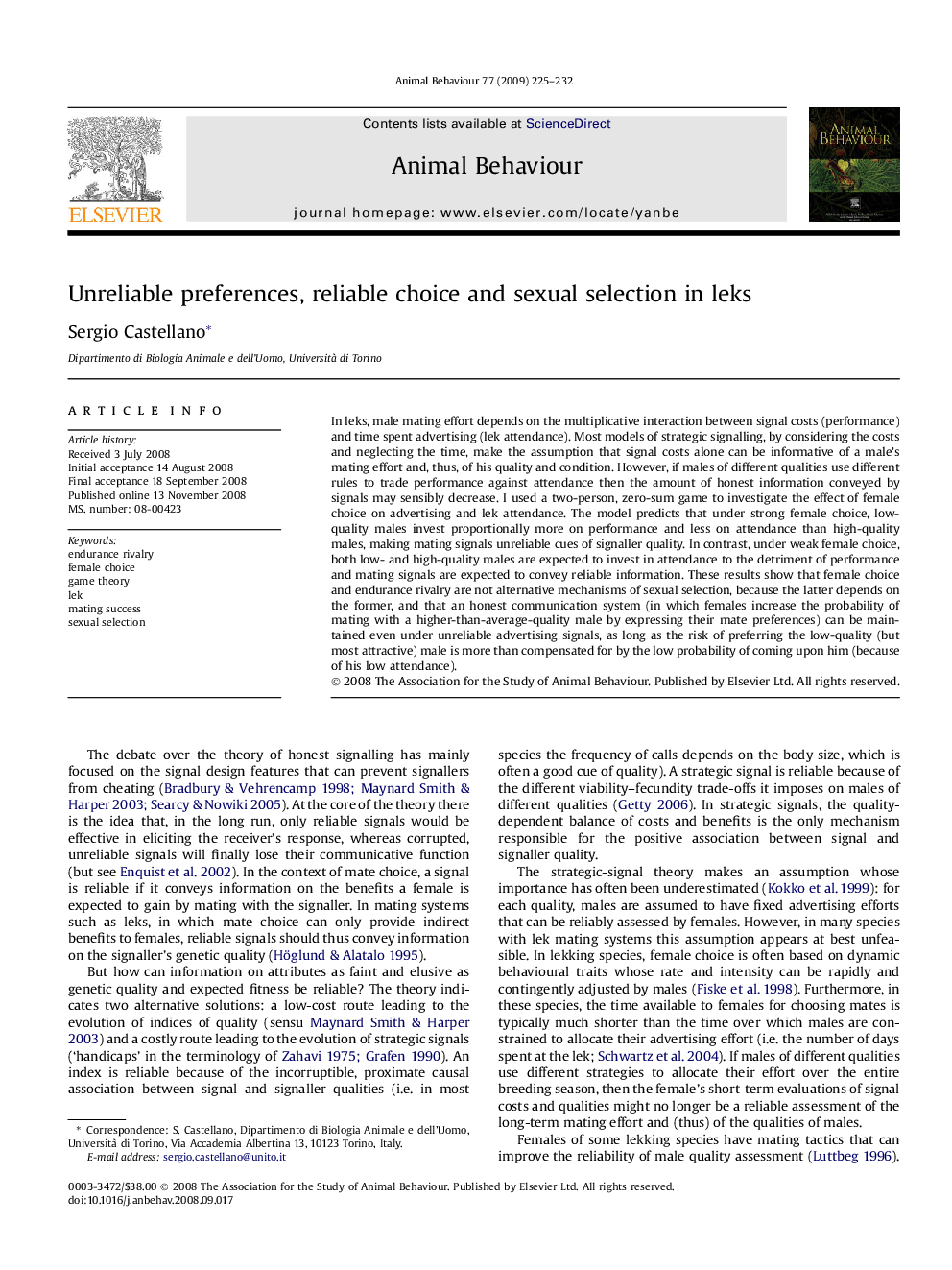| کد مقاله | کد نشریه | سال انتشار | مقاله انگلیسی | نسخه تمام متن |
|---|---|---|---|---|
| 2418381 | 1104344 | 2009 | 8 صفحه PDF | دانلود رایگان |

In leks, male mating effort depends on the multiplicative interaction between signal costs (performance) and time spent advertising (lek attendance). Most models of strategic signalling, by considering the costs and neglecting the time, make the assumption that signal costs alone can be informative of a male's mating effort and, thus, of his quality and condition. However, if males of different qualities use different rules to trade performance against attendance then the amount of honest information conveyed by signals may sensibly decrease. I used a two-person, zero-sum game to investigate the effect of female choice on advertising and lek attendance. The model predicts that under strong female choice, low-quality males invest proportionally more on performance and less on attendance than high-quality males, making mating signals unreliable cues of signaller quality. In contrast, under weak female choice, both low- and high-quality males are expected to invest in attendance to the detriment of performance and mating signals are expected to convey reliable information. These results show that female choice and endurance rivalry are not alternative mechanisms of sexual selection, because the latter depends on the former, and that an honest communication system (in which females increase the probability of mating with a higher-than-average-quality male by expressing their mate preferences) can be maintained even under unreliable advertising signals, as long as the risk of preferring the low-quality (but most attractive) male is more than compensated for by the low probability of coming upon him (because of his low attendance).
Journal: Animal Behaviour - Volume 77, Issue 1, January 2009, Pages 225–232